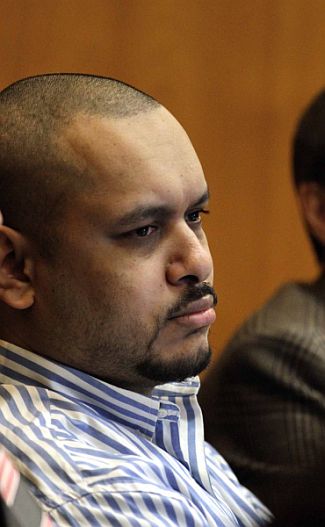
"Though he has ruined his own life with his actions, I pray that it does not follow him to the next world. I have no ill feelings about him and pray for a change of his heart," said Silvie Perincheril, commenting on a jury verdict that found Joseph Pallipurath guilty of knowing and purposeful murders inside the St Thomas Knanaya Church in Clifton, New Jersey, US.
Twenty-nine-year-old Pallipurath faces mandatory life term in prison without parole. It could even go up to three mandatory life sentences without parole, when Paterson Superior Court Judge Salem Ahto sentences him on May 27.
The judge could decide to run the jail terms consecutively or concurrently. Since there is no death penalty in New Jersey, this is the possible maximum punishment for murder. He was charged with two counts of murder and one count of attempted murder.
The shooting on November 23, 2008 left his wife Reshma James (24) and Dennis John Malloosseril (25) left dead, while Silvie, Reshma's aunt, was grievously wounded.
...
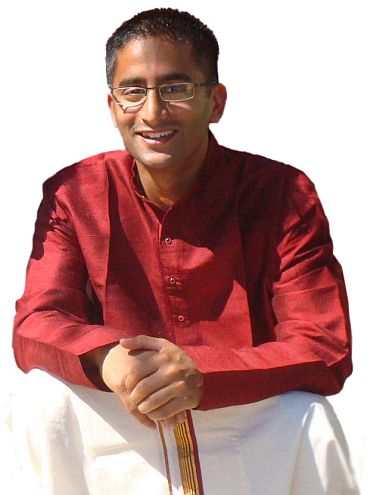
Wheel chair bound Silvie lives with fragments of the bullet that hit her head.
"Justice was served. He drove 3000 miles filled with anger and carried guns and ammunition. He paid for his actions," Silvie's husband Thampy Perincheril said.
Attorney Harley Breite, who represented Pallipurath, whose family lives in Sacramento, California, said he was disappointed at the verdict.
"Obviously, we recognised that judgments occur. However, I am disappointed that passion superseded reason," he said.
Pallipurath had made terrible mistakes in his life. Yet he said he did not agree with the jury for the decision on the set of events that occurred before the murders.
"This is not a happy occasion for anyone," Aleykutty John, mother of Dennis John, who died helping Reshma, said.
"I forgave him (Pallipurath) the same evening when my son died. I always pray for him. I hope he turns around his life now," she said.
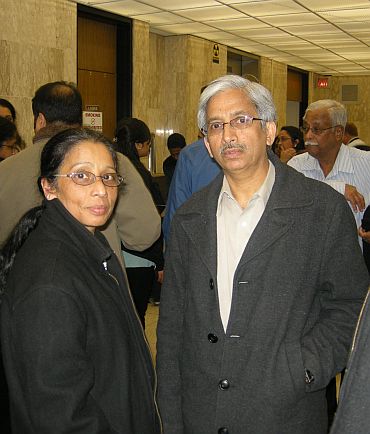
"Pallipurath, during the trail, said there is a reason for everything. This is the reason for his turnaround. As a mother I feel sorry for his parents. I can imagine what they are undergoing now," she said.
Her husband, John Abraham Malloosseril felt justice was served. He said Pallipurath got what he deserved.
"We don't keep anger in our hearts. But the verdict proves once again that god is just as always," he said.
The death of Dennis John benefited five persons with his organs, who are doing well, he said. The person who got the heart recently called to invite them to the marriage of his daughter.
A scholarship fund has been instituted in the name of Dennis John.
Aleykutty John, a nurse, said she is a different person after the death of their only son.
"My life too turned around after that. I feel more compassionate. I treat patients and others with more sympathetically and often understand their pain," she said.
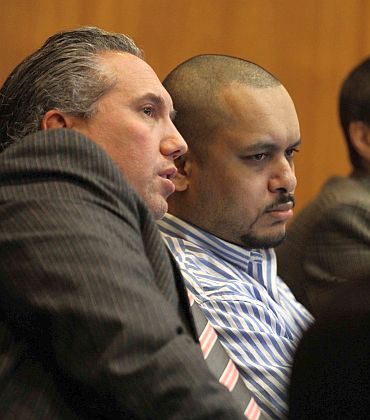
During the trial and closing arguments, Attorney Harley Breite tried to portray a young man who acted inadvertently due to passion and anger.
'Pallipurath was not a monster. He committed the crime accidentally and he was not in the right state of mind then. He never concealed his identity. Those who kill for money or fun are the real monsters. But Pallipurath never wanted to hurt or shoot anyone,' Attorney Breite said.
'He loved his wife dearly. He came to the church to take her back. When he grabbed her hand, she followed him without resistance to the main door of the church. Then two people intervened and Dennis John pushed them apart. Pallipurath then took out the revolver he was holding. Nobody saw a gun with him till then. It was a 'passion provocation' and in the ensuing struggle, the gun went off and Reshma fell dead. Seeing his beloved wife fall, he blacked out and shot more that killed Dennis and injured Silvie,' he added.
'I am not belittling the heroic act of Dennis John. If he wanted to kill Reshma or others, he could have done it as soon as he saw her,' the attorney said, adding that he was not asking for leniency but for reason from the jurors. He requested them not to be swayed by passion in taking a decision.
Passion-provocation manslaughter carries a five-to-10-year prison term, while murder carries 30 years to life.
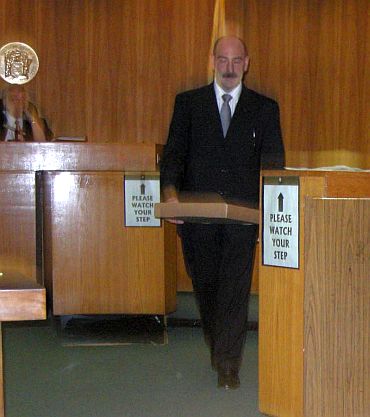
Passaic County Chief Assistant Prosecutor John Latoracca argued that Pallipurath's actions were purposeful and knowing. He asked, 'who will go to see one's beloved wife with guns and a great quantity of ammunition'.
'If he wanted to speak with his wife alone, he could have gone to Silvie's house where she was living. He was spying on the house and knew when others went to work and when Reshma was alone. Yet he chose the church where more than 150 people were assembled. He knew his wife did not want to continue the relation and thought a crowded place would help him.'
'He blamed her family and the community for the problems in his marriage rather than fixing it himself.'
Latoracca also pointed out that Reshma was shot twice and one was from behind.
'Once he knew that Reshma was in New Jersey, he planned things buying a jeep and driving for five days and staying in New Jersey for more than two weeks.'
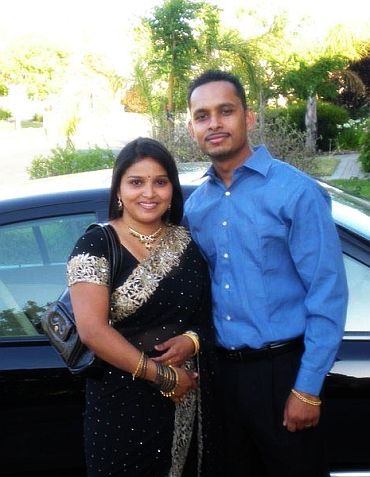
During his testimony, Pallipurath, who had not graduated from high school, himself narrated the events since he first met Reshma. He had moved to his grandfather's house in Kerala in December 2007 after a break up in Califronia. His family placed a matrimonial advertisement for him. He liked Reshma, then 23.
But her family was not interested, he said, as they had heard negative things about him. Reshma insisted; her family eventually came around. Reshma came to California in January 2008, and soon the arguments began, which resulted in Pallipurath slapping her twice.
In mid 2008, the couple went to India; Reshma had arranged the trip. Pallipurath said her family started yelling at him at the airport and she left with them. He said a compromise meeting was arranged where her family insulted him again and Reshma spoke against him. The couple saw a counsellor in Bengaluru, who suggested they live separately for six months to cool things.
Pallipurath revealed that the counsellor had warned Reshma that he would kill her if they lived together. The counsellor told her that Pallipurath had a personality disorder. Till then, he said, Reshma had wanted to live with him. They quarreled again and Pallipurath slapped her in an autorickshaw. Soon after that he returned to California.
He said he still loved his wife, and she too wanted to continue the marriage, but blamed her family for creating problems. He said she called him from Sylvie's home in New Jersey in August 2008. Whenever he called her, her aunt or others would not give the phone. Pallipurath then created an e-mail ID in the name of a mutual friend to get in touch with her. The e-mails show Reshma expressed no interest in him.
Pallipurath said though he spoke of violence, he never wanted to follow through. Depressed at her indifference, he decided to move to Atlanta. He bought a Jeep, but on his way he decided to head to New Jersey.
The two guns, which he said were purchased legally, and the ammunition were in the vehicle. He knew how to use guns as he had worked in security. Pallipurath watched Silvie's house through binoculars to meet Reshma alone and went to the church on two Sundays before the shooting.
After the shooting, Pallipurath threw the guns in a trash can, bought cigarettes at a nearby shop, went to New York City and boarded a bus for Texas. He alighted at Baltimore and took a taxi to Monroe, Georgia. He claimed he was not sure what he was doing.
Pallipurath said he was planning to hang himself, but was arrested before that. His first question to the police was about going to a state where the death penalty for murder was available, the defence noted.